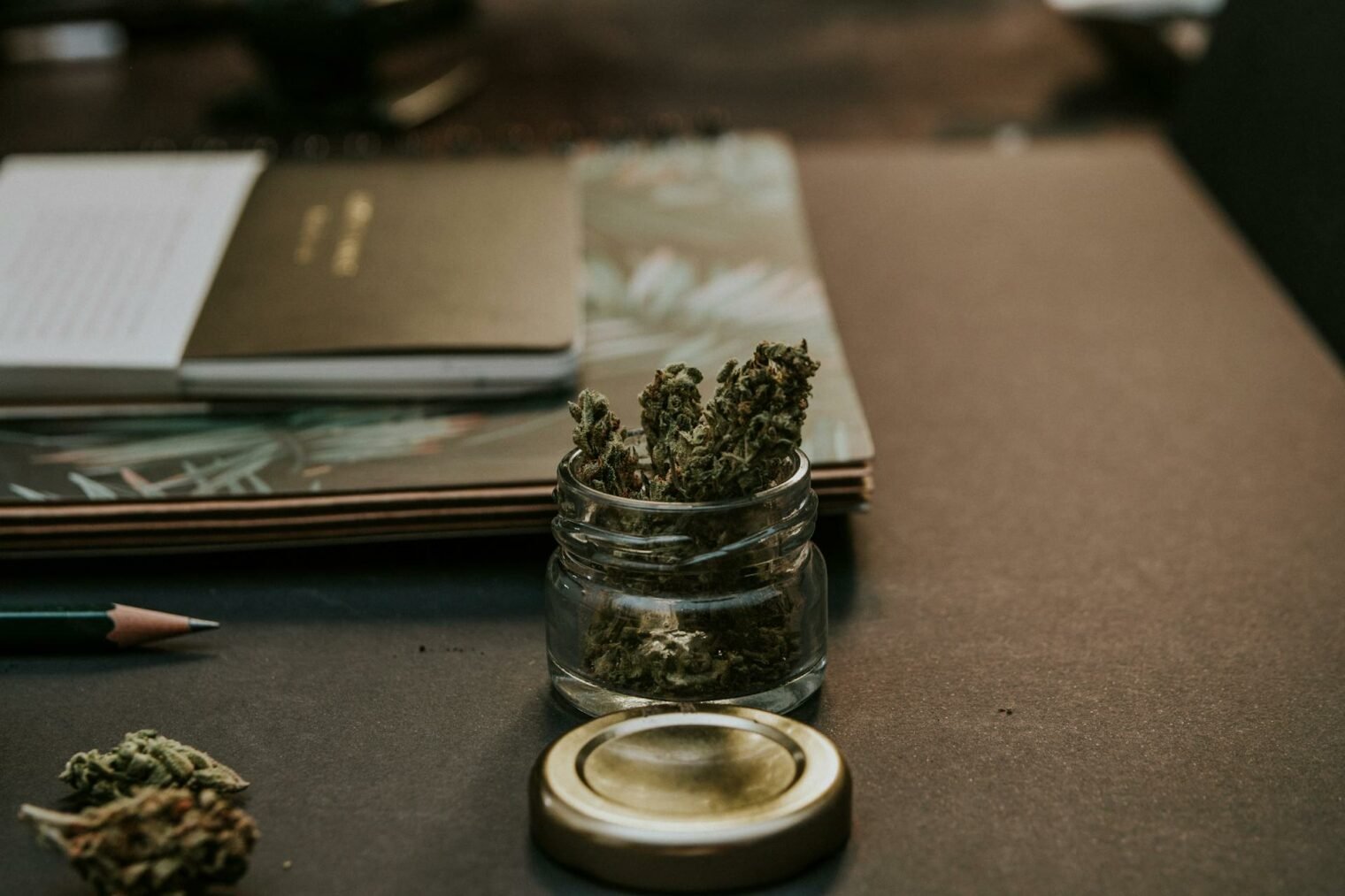The Thailand Cannabis Dilemma: To Keep Weed Legal or Not!

Table of Contents
In the verdant landscape of Thailand cannabis, a challenging decision looms: whether to legalize cannabis fully for both medical and recreational use or maintain its current restricted status.
Let’s delves into the political, economic, and public health dimensions of the Thailand cannabis dilemma. As the country grapples with differing opinions on the matter, exploring the potential benefits, drawbacks, and experiences from other nations becomes paramount.
Join us on this evidence-based journey as we navigate the path towards a comprehensive cannabis policy that balances responsible use and societal well-being.
Thailand Cannabis Legalization Going Forward: Key Takeaways
– Political parties in Thailand have different stances on cannabis legalization, with some supporting only medical use and others advocating for recreational use under strict regulations.
– Enforcing strict regulations on the line between medical and recreational use can be challenging, but keeping recreational use legal can contribute positively to Thailand’s economy and prevent the formation of a black market.
– Striking a balance between medical and recreational use is important, as responsible legalization of recreational use can provide economic benefits while protecting public health.
– Restricting recreational use of cannabis may hinder the growth of the cannabis industry, limit economic opportunities, and make it harder to control and regulate the drug.
Current Legal Status of Thailand Cannabis Use
As of now, the legal status of Thailand cannabis remains unregulated due to the absence of a marijuana code bill. This lack of regulations has created uncertainty in the cannabis industry and has left many potential users and businesses in a state of limbo.
However, there are future prospects for change as political parties have different stances on cannabis legalization. Some parties support medical use only, while others advocate for recreational use under strict regulations. The Bhumjaithai Party, for example, has emphasized the medical and commercial use of cannabis.
The future of the cannabis industry in Thailand will depend on the decision to either regulate and legalize cannabis or maintain the current unregulated status. The potential benefits of regulation include economic growth and control over the drug’s distribution, while drawbacks may include difficulties in enforcement and potential misuse.
Ultimately, striking a balance between medical and recreational use is crucial for Thailand cannabis policy.
Political Stances on Thailand Cannabis Legalization
The political landscape in Thailand is divided as parties grapple with the decision to either embrace or oppose the legalization of cannabis for both medical and recreational purposes.
Some political parties support the legalization of cannabis for medical use only, while others advocate for recreational use under strict regulations.
The Bhumjaithai Party, for example, emphasizes the medical and commercial use of Thailand cannabis.
Public opinion on cannabis legalization is also divided, with some supporting the potential medical benefits and economic opportunities, while others express concerns about misuse and addiction.
Striking a balance between medical and recreational use is seen as important in the evolving cannabis landscape, as it can address concerns from both supporters and opponents of legalization.
Overall, the decision on cannabis legalization in Thailand will require careful consideration of political stances, public opinion, and potential benefits and drawbacks.
Implications of Keeping Recreational Cannabis Legal in Thailand
Strategically regulating the line between medical and recreational use of Thailand cannabis is crucial to mitigate the potential implications of keeping recreational cannabis legal.
While there are challenges in enforcing strict regulations, there are also benefits to keeping recreational use legal. One of these benefits is the prevention of black market formation. By allowing legal recreational use, the government can better control and regulate the drug, reducing the need for illicit trade.
Additionally, strict age restrictions and regulations can be imposed to ensure responsible use and protect public health.
It is important to strike a balance between medical and recreational use in order to cater to both needs and address concerns from both supporters and opponents of cannabis legalization.

Economic Benefits of Legalizing Recreational Use
By legalizing recreational use of cannabis and implementing effective regulations, Thailand can harness the economic benefits that come with a thriving cannabis industry.
– Potential Economic Growth: Legalizing recreational use can create a new industry that generates revenue and creates job opportunities. It can attract investment and stimulate economic growth.
– Impact on Tourism: With the legalization of recreational cannabis, Thailand can become a popular destination for cannabis tourism. This can attract tourists from around the world and boost the tourism industry.
– Increased Tax Revenue: The Thailand cannabis industry can contribute significant tax revenue to the government. This revenue can be utilized for public services and infrastructure development.
– Job Creation: The Thailand cannabis industry has the potential to create a wide range of job opportunities, from cultivation and processing to retail and tourism-related services.
Ensuring Responsible Use and Public Health
Proper regulation and education around Thailand cannabis use are essential for promoting responsible consumption and safeguarding public health.
The importance of education and awareness cannot be overstated in ensuring that individuals understand the potential risks and benefits associated with cannabis use. By providing accurate and evidence-based information, individuals can make informed decisions about their consumption habits. Education should focus on the potential health effects, responsible use guidelines, and harm reduction strategies.
Additionally, regulation and enforcement play a crucial role in ensuring that cannabis products meet safety standards and are not contaminated with harmful substances. This includes implementing age restrictions, product labeling requirements, and quality control measures.
Striking a Balance Between Medical and Recreational Use
In order to navigate the complex landscape of Thailand cannabis legalization, policymakers must carefully consider the potential benefits and challenges of finding a middle ground between medical and recreational use.
Benefits of recreational use:
– Supports the cannabis industry and contributes positively to the economy.
– Prevents the formation of a black market and allows for better control and regulation.
– Can be accompanied by strict age restrictions and regulations for responsible use.
– Thrives with a balanced approach, catering to both medical and recreational needs.
Challenges of regulation:
– Enforcing strict regulations on the line between medical and recreational use can be difficult.
– Restricting recreational use may hinder the growth of the Thailand cannabis industry and limit economic opportunities.
– Prohibition may lead to the formation of a black market, making it harder to control and regulate the drug.
– Overly restrictive regulations may negatively affect responsible vendors and consumers.
Finding a balance between medical and recreational use is important to ensure responsible consumption, economic benefits, and address concerns from both supporters and opponents of cannabis legalization.
Potential Drawbacks of Restricting Recreational Thailand Cannabis
Restricting recreational use of Thailand cannabis may inadvertently lead to the proliferation of an unregulated black market, with limited control and regulation over the drug. This has the potential to have negative effects on society and public health.
Prohibition of recreational use can create a void that is filled by illegal suppliers, resulting in an underground market that operates without oversight or quality control. This lack of regulation can lead to the sale of contaminated or adulterated products, posing risks to consumers.
Additionally, the black market can contribute to increased criminal activity and the potential for violence. By keeping recreational use legal and implementing strict regulations, such as age restrictions and quality standards, the government can better control and regulate the drug, ensuring consumer safety and minimizing the impact of the black market.
Considerations for Decision-making
When making a decision regarding the legal status of cannabis, it is crucial to take into consideration various factors, such as public opinion, economic impact, and insights from countries that have already legalized recreational use.
– Public opinion on cannabis legalization: Understanding the views of the general public is essential in shaping policies. Conducting surveys and gathering public input can provide valuable insights into the acceptance and potential concerns surrounding cannabis legalization.
– Economic impact of the cannabis industry: Legalizing Thailand cannabis for recreational use can have significant economic benefits. It can create jobs, generate tax revenue, and stimulate economic growth. Additionally, it can reduce the burden on law enforcement and the criminal justice system.
– Insights from countries that have legalized recreational use: Studying the experiences of countries like Canada, Uruguay, and certain states in the United States can provide valuable lessons and best practices. This can help policymakers make informed decisions and avoid potential pitfalls.
Taking into account public opinion, the economic impact, and insights from countries that have already legalized recreational use can contribute to a comprehensive and evidence-based approach to cannabis policy.
Adopting an Evidence-based Approach to Thailand Cannabis Policy
To effectively shape Thailand cannabis policy, policymakers must adopt an evidence-based approach that incorporates current research and analysis. This approach is crucial in addressing the complex issues surrounding cannabis legalization, such as public opinion and the potential impact on public health and the economy.
By relying on scientific evidence and expert analysis, policymakers can make informed decisions that balance the potential benefits and risks of cannabis use.
Public opinion should also be taken into account, as it reflects the perspectives and concerns of the citizens. By engaging with the public and considering their viewpoints, policymakers can ensure that the cannabis policy aligns with the needs and values of the society.
Overall, an evidence-based approach that incorporates public opinion is essential in navigating the complexities of cannabis policy in Thailand.
Will Thailand Cannabis Laws Change?
In conclusion, the Thailand cannabis dilemma presents a complex issue that requires careful consideration.
While maintaining the legal status of recreational cannabis may pose challenges in terms of regulation enforcement, there are potential economic benefits that cannot be ignored.
Striking a balance between medical and recreational use can ensure responsible consumption and address concerns from both sides. However, restricting recreational use may hinder economic opportunities and contribute to the growth of a black market.
Ultimately, a comprehensive and evidence-based approach is necessary to navigate this dilemma effectively.
How can Thailand find the optimal solution for its cannabis policy?


